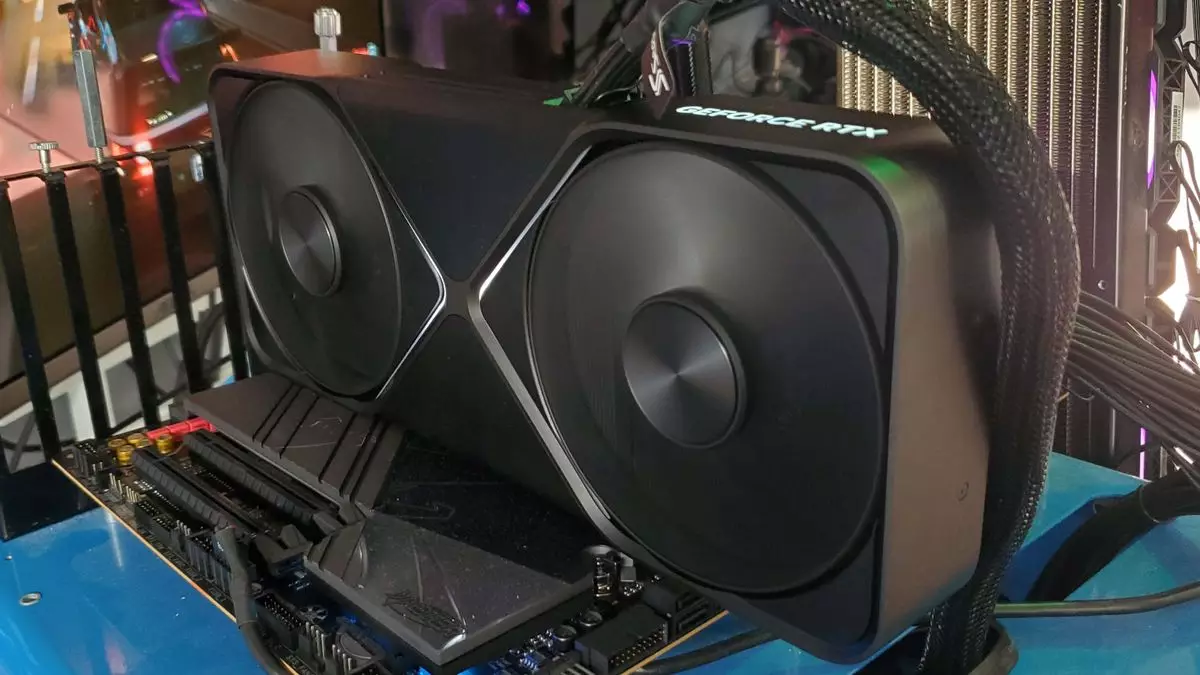As the GPU landscape continues to evolve, the recent emergence of the RTX 5090 has sparked excitement among gaming enthusiasts. Yet, this advancement should come with a warning: the importance of having the right power supply unit (PSU) cannot be overstated. Drawing insights from seasoned experts like Aris Mpitziopoulos, CEO of Cybenetics, we delve into the nuances of power supply choices and the potential pitfalls of using adapters and extenders.
In the world of PC building, the allure of premium aesthetics often drives users to invest in visually appealing components. High-end power cables are no exception. However, spending money on fancy cables while neglecting the core functionality of the PSU can be a disastrous miscalculation. This misconception was addressed directly by Mpitziopoulos, who emphasized, “Do not buy adapters or extenders.” It’s a phrase that underscores a critical consideration: prioritizing safety and reliability over mere appearance.
Choosing quality over aesthetics becomes particularly pertinent when dealing with high-performance hardware like the RTX 5090, known for drawing a staggering 48 amps or more during operation. The connection’s integrity under such demand is paramount, and third-party cables may not meet the stringent electrical requirements needed for such power-hungry components.
The Risk Factors of Improper Power Delivery
The stakes are higher than ever with the RTX 5090; using substandard extensions or adapters can lead to overheating, connection failures, and even melting components. Mpitziopoulos expresses concern that while the new 12VHPWR connector is designed to handle significant power loads, the failure often lies with third-party products that lack the necessary quality assurance. In essence, consumers should regard the risks associated with poor cable choices as non-negotiable.
It’s important to recognize that the fundamental infrastructure—namely the PSU—needs to be robust enough to handle the power requirements demanded by cutting-edge GPUs like the RTX 5090. Mpitziopoulos explains that all 12V-2×6 cables are generally capable of delivering 600W, which offers ample capacity if correctly implemented. However, this potential diminishes when consumers opt for non-native connectors that don’t ensure proper electrical delivery.
Understanding PSU Compatibility and Specifications
Navigating the world of PSUs can be labyrinthine, especially with the diversity of configurations available on the market. Reports indicate that many older PSUs utilize 8-pin connectors instead of native 12V-2×6 sockets. In such cases, improper connectors could create vulnerabilities that threaten hardware integrity.
For instance, Corsair’s 2024 Shift RM models include a dedicated 12VHPWR cable but revert to using two 8-pin connectors for the PSU itself. In this situation, compatibility with the RTX 5090 hinges on utilizing the proprietary cable that comes with the PSU. The consequences of attempting to substitute these with generic alternatives could be dire, as it could lead to insufficient power delivery, resulting in overheating and component damage.
As gamers contemplate the price tag for cutting-edge GPUs like the RTX 5090, it begs the question: why skimp on the PSU? Spending thousands on a graphics card while undervaluing the component that fuels it is a gamble few can afford. The delicate nature of the RTX 5090’s power distribution, with only 12 pins handling the entire current, makes it imperative that users invest in a PSU designed for the card’s exact specifications.
Mpitziopoulos’s advice advises consumers to consider PSUs with dedicated 12VHPWR sockets as a proactive approach. This decision not only enhances safety but ensures the rig can handle spikes in demand without compromising performance. An investment in suitable hardware can mean the difference between reliability and catastrophic failure.
As the gaming world embraces the power of the RTX 5090, users must remain vigilant in ensuring that their builds are safely and effectively powered. The adage “you get what you pay for” rings especially true in the realm of PSUs, where quality correlates directly to safety and performance. Following Mpitziopoulos’s critical advice can serve as a vital component to a successful and stable gaming experience. Ultimately, the pursuit of aesthetic perfection should never come at the expense of functionality and safety—always prioritize power integrity in your PC builds.


Leave a Reply